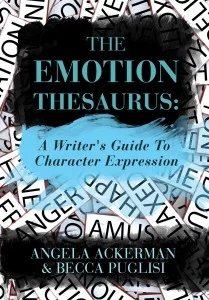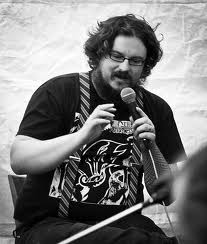How I Do It: Successful Indie Authors Share Their Secrets. This week: CJ Lyons.
"It's all about the reader." CJ Lyons talks about the writing and publishing strategies that have led her to her to sell…
Self-publishing Author Advice about the art and craft of writing great books
"It's all about the reader." CJ Lyons talks about the writing and publishing strategies that have led her to her to sell…
Joanne Phillips, author of two novels and nearing the completion of her third, explains how to recruit and use beta…
"Twitter changed my life, it really did." Mel Sherratt talks about the writing and publishing strategies that have made her…
When I first came across fan fiction I was amazed – not at the idea of writing my own stories…
One of the least discussed benefits of ebooks and digital publishing is how they are giving rise to interesting new…
 All successful novels, no matter what genre, have one thing in common: emotion, writes Bella Puglisi one half of The Bookshelf Muse blogging duo, and co-author of The Emotion Thesaurus: A Writer's Guide to Character Expression.
All successful novels, no matter what genre, have one thing in common: emotion, writes Bella Puglisi one half of The Bookshelf Muse blogging duo, and co-author of The Emotion Thesaurus: A Writer's Guide to Character Expression.
It lies at the core of every character’s decision, action, and word, all of which drive the story. Without emotion, a character’s personal journey is pointless. Stakes cease to exist. The plot line becomes a dry riverbed of meaningless events that no reader will take time to read. Why? Because above all else, readers pick up a book to have an emotional experience. They read to connect with characters who provide entertainment and whose trials may add meaning to their own life journeys.
It is easy to see the power of emotion and how it connects a reader to the story and characters. The difficulty comes in writing it well. Each scene must achieve a balance between showing too little feeling and showing too much. Above all, the emotional description needs to be fresh and engaging. This is a tall order for writers who tend to reuse the same emotional indicators over and over.
So... It's almost November and writers across the world are stocking their fridges scribbling notes. Yes, it's NaNoWrMo time. Natalie Wright,…
Your book Is only the beginning, says writing and publishing expert and ALLi Advisor, Joanna Penn. Technology and online tools now enable any author who is willing to learn a few simple skills to turn their book into a variety of multimedia products.
Non-fiction writers in particular have the opportunity to make their books the basis from which they expand into multiple products in different formats.
This can be the most effective way to make an on-going income from your creative work.
Kelly McClymer counts the ways.
Writers, especially self-published writers, often feel like they need a time bodyguard. There are always other pesky things to do like raise children, make dinner, do laundry, work. When I first began to write, I dreamed of the day I'd get an advance big enough I could justify holing up in my office for a full day of uninterrupted writing time.
Despite a dozen published novels, that day never came. I chalked it up to my inability to snag that coveted seven figure advance, and kept on writing, working, cooking, and cleaning (well…talking about cleaning, at least).
John Potter writes: In this time of emergent digital publishing, writers have never been more empowered to write the kind of…
OK, I’m the first to admit I’m subject to a not insubstantial influence from Ginsberg,  Cassady, Patti Smith and various other parts of late mid twentieth century American countercultur — but this really has nothing to do with navel-gazing, primal screams or the Age of Aquarius. Just like those slightly awkward elements of hippydom, though, this is one of those topics that makes authors shift uneasily in their chair, shuffle and generally look for an exit.
Cassady, Patti Smith and various other parts of late mid twentieth century American countercultur — but this really has nothing to do with navel-gazing, primal screams or the Age of Aquarius. Just like those slightly awkward elements of hippydom, though, this is one of those topics that makes authors shift uneasily in their chair, shuffle and generally look for an exit.
I get why writers resent the question: “What do you stand for?” You can understand it in two ways. First, it sounds like a